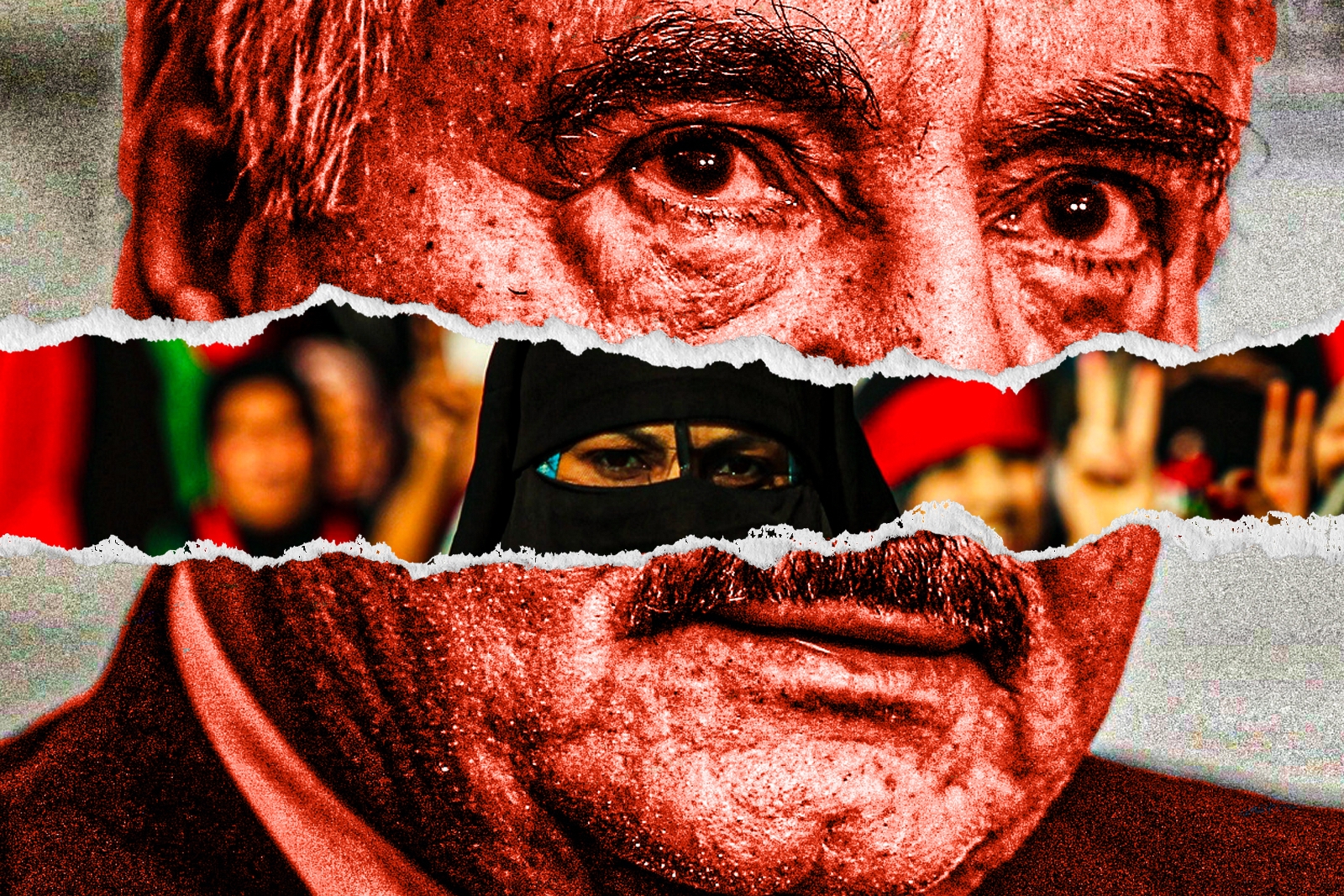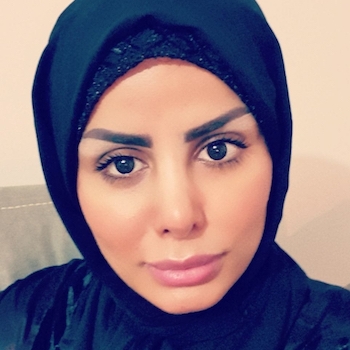
The Price I Pay as a Female Human Rights Activist in Libya
My name is Nadine Al-Farsi. I was forced from my home in Benghazi, warrants were issued for my arrest and my father, Saeed Al-Farsi, a former colonel in the Libyan army who held several prominent military and judicial positions, was kidnapped. I fled to Egypt and now Turkey while my sister is currently being threatened with kidnapping and is likely being held against her will.
I am a woman and a human rights and political activist in Libya. My sister would only be safe, I was told, if I quit social media and stop my activism.
Today, 11 years since our revolution, many Libyan women are still suffering from the scourge of powerful forces in Libya today. Especially with the characteristics of the conservative Libyan society, which may limit women’s rights and discourage them from effective participation in politics. As one of these Libyan women and a human rights activist, my voice threatened these forces, and the police state that I despise.
I first began speaking out after Operation Dignity, led by Khalifa Haftar and his sons Saddam and Khalid, in 2014, which Libyans remember for the horrific practices that took place against civilians, in addition to a series of arrests and killings targeted specifically at Libyan women with prominent political views.
When I do speak, I am an independent activist who does not speak on behalf of a particular political party. Rather, I deal with prominent international human rights organizations that help document cases of kidnapping and extrajudicial killings carried out by the men who seek to or do partly control Libya through force and coercion.
With them, we recall the hundreds of crimes that have occurred in Libya, many under the eyes and command of Khalifa Haftar, an American citizen and warlord recently found responsible for war crimes by a United State court in Virginia. Since he declared control over Benghazi, many people – especially women – have been victims of torture, forced disappearances, and extrajudicial killings, in addition to rape and physical assault on women who are active in the political and human rights fields.
Among the women who have been murdered are MP Siham Sergewa and lawyer Hanane Al-Barassi. As for enforced disappearance and torture, one of the victims is the activist Iftikhar Boudraa, who was imprisoned for 3 years without a sentence and tortured by burning her hands and face.
These despicable acts also affected foreign women, such as Sudanese women Aisha, Alawia, and Zainab, who were killed and thrown into garbage bins. Among the victims were also elderly women, such as Maqboula Al-Hassi, who was kidnapped by forces affiliated with Haftar.
The crimes of powerful officials affiliated with Haftar also include the rape of Nesreen Al-Sharkasi, who issued an appeal in which she spoke personally about the incident. There are also a large number of male activists who were threatened with assault and the raping of their wives.
The list goes on with the names of Libyan women from Derna and Benghazi who are still imprisoned in Gernada and Kweifiya since the outbreak of Operation Dignity, without any trial. It is hard to imagine but children were also included in these political conflicts, as these police gangs kidnapped a number of children under the age of 18, including Marwa Al-Fitouri and her sister, Mona Al-Fitouri. The kidnapped children are mainly used in prisoner exchanges.
All of this is only a small portion of what Haftar uses to blackmail and silence activists, especially given that women’s rights are a sensitive issue in Libyan society.
Despite what happened to me previously and the constant threats that I am facing today, I am still true to my beliefs. I encourage women to express their opinion and participate in the political process in defiance of the police state and its practices.
We, as active women in a Libyan society that has its own customs and traditions, bear a great burden on our shoulders, especially since the party that silences us and limits our freedoms is a party of great power and influence. But by speaking out about the crimes, I attempt to help create a country of laws. I feel a great responsibility to amplify the voices of victims of extortion and political violence, especially women.
But I paid a heavy price for my activism. The threats to my safety and my family continue to this day. This is a price that no activist should have to bear.
Right now, I honestly live in a severe emotional and psychological struggle. On the one hand, I have the responsibility of helping oppressed people among my followers, especially the women who ask me not to stop my human rights work. On the other hand, my family remains in very real danger. If threats were only towards me, I wouldn’t really care honestly. Despite what I have been through, I still consider myself a tough woman, and threats do not frighten me. I can bear the consequences of my activities and the decision to keep going for the sake of my country, to defend women, support the oppressed, and hold criminals accountable.
I also believe that if they are allowed to silence my voice, it will be easier for them to silence the rest of the activists especially since Libya has reached a crossroads today and we must fight for its future.
I am, however, astonished by the international community, which is showing greater interest in defending women and improving their lives. But so far, there seem to be no real steps and no real interest in preventing or investigating crimes or holding criminals accountable for actions when those crimes happen outside of Europe or to women of color.
But these crimes are happening. And they are a major reason we must amplify the voices of the oppressed and hold accountable those who commit the crimes – for they are the reason Libyan women today have become almost invisible.
Libyan women fear that they will meet the same fate as those who preceded them. It’s up to all of us whether we allow these repressive conditions to continue to be true.

